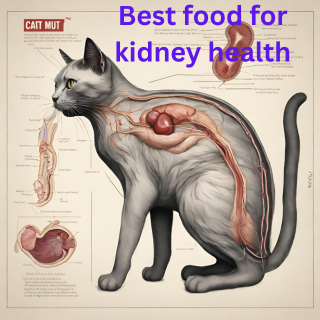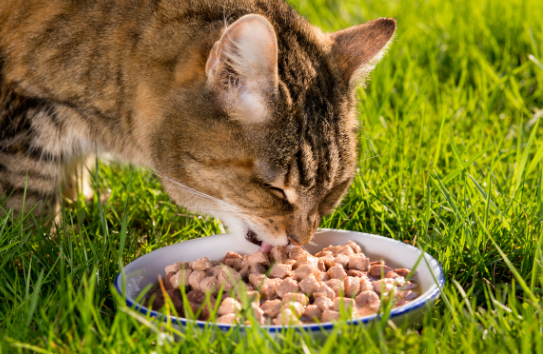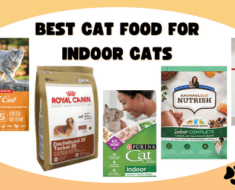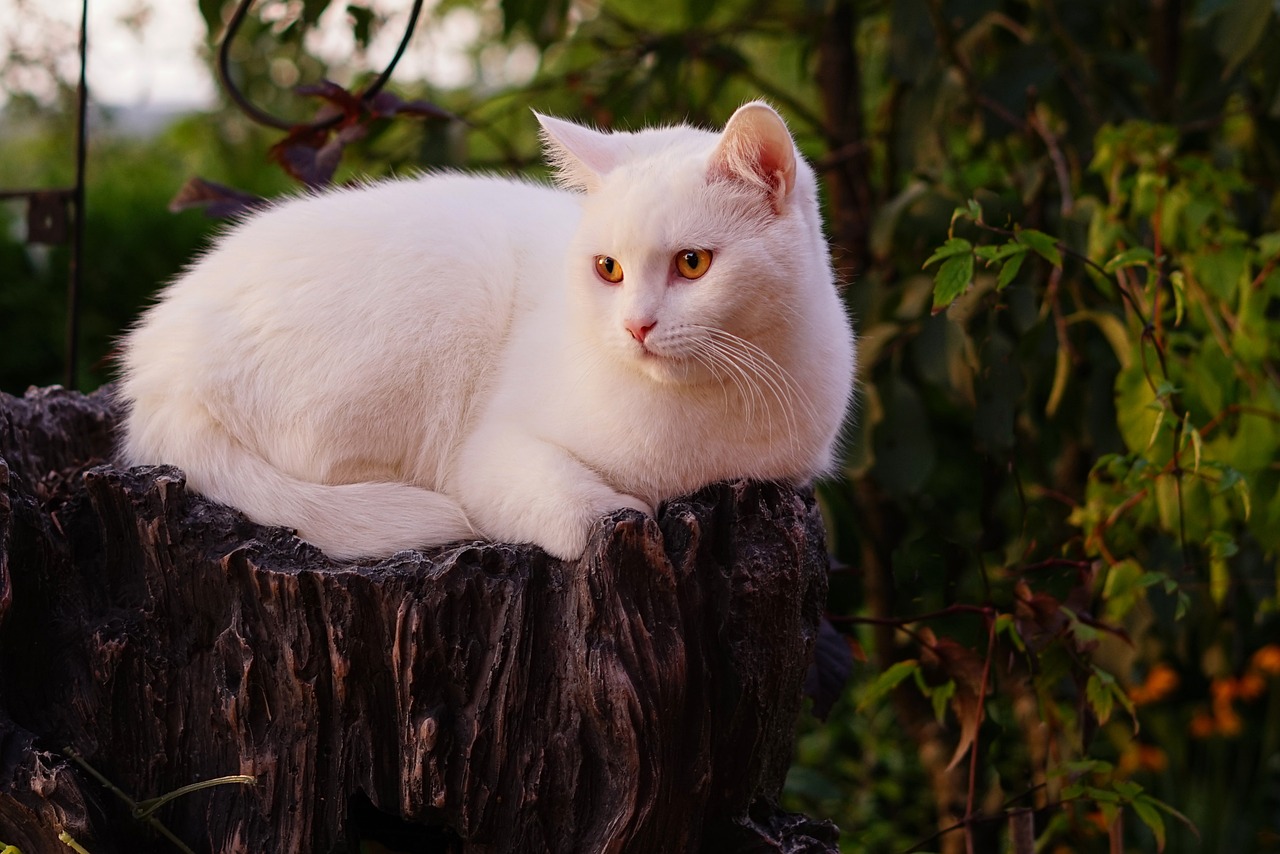Looking for the best cat food to support your feline friend’s kidney health? You’ve come to the right place. In this article, we’ll explore the top options available that can help ensure optimal kidney function in cats. Maintaining kidney health is crucial for cats, especially as they age. Kidney disease is a common condition among felines, and choosing the right food can make a significant difference in managing this condition. Our selection of the best cat food for kidney health focuses on options that are specifically formulated to support renal function. These foods typically have lower protein and phosphorus levels, reducing the strain on the kidneys.
They also contain essential nutrients- like antioxidants and fatty acids to promote overall well-being. Whether your cat is dealing with kidney disease or you simply want to support their kidney health proactively, we’ve got you covered. Join us as we uncover the top choices in feline nutrition for optimal kidney health. Your furry friend deserves the best, after all. Remember, always consult with your veterinarian before changing your cat’s diet. Let’s give our feline friends the care they deserve!
Common Kidney Problems in Cats
Cats are susceptible to a range of kidney issues, with chronic kidney disease (CKD) being one of the most common. CKD is a progressive condition where the kidneys gradually lose their ability to function properly over time. Other kidney problems include urinary tract infections, kidney stones, and acute kidney injury. These conditions can arise due to various factors such as aging, genetic predisposition, infections, or underlying health issues.
Supplementing Your Cat’s Diet for Kidney Health
In addition to providing a balanced diet, supplementing your cat’s food with specific nutrients can support kidney health. Omega-3 fatty acids, commonly found in fish oil supplements, have anti-inflammatory properties that can help reduce kidney inflammation and improve overall renal function. Antioxidants like vitamin E and vitamin C can protect the kidneys from oxidative damage caused by free radicals. Additionally, supplements such as probiotics can promote gut health, which is indirectly linked to kidney function.
Reviews of the Best Cat Food Brands for Kidney Health
1. Royal Canin Veterinary Diet Renal Support:
This specialized diet is formulated with reduced phosphorus levels and high-quality protein to support cats with renal issues. It also contains essential nutrients to maintain muscle mass and overall health.
2. Hill’s Prescription Diet k/d Kidney Care:
Renowned for its efficacy in managing kidney disease, this diet provides controlled levels of phosphorus and sodium while offering a palatable taste that cats enjoy. It’s designed to support kidney function and slow the progression of CKD.
3. Purina Pro Plan Veterinary Diet NF Kidney Function:
With its focus on restricted phosphorus and high-quality protein sources, this diet helps minimize the workload on the kidneys and supports renal function. It’s suitable for long-term management of kidney disease in cats.
Understanding the Importance of Kidney Health in Cats
Healthy kidneys are essential for maintaining proper fluid balance, filtering waste products from the blood, and regulating electrolyte levels in the body. When kidney function declines, toxins build up in the bloodstream, leading to symptoms such as increased thirst, decreased appetite, weight loss, and lethargy. Left untreated, kidney problems can significantly impact a cat’s quality of life and may eventually lead to organ failure.
Factors to Consider When Choosing Cat Food for Kidney Health
When selecting cat food for kidney health, several factors should be taken into account:
– Phosphorus Content: High levels of phosphorus can burden the kidneys, so opting for foods with reduced phosphorus content is advisable.
– Protein Quality: While cats require protein for muscle maintenance, high-quality protein sources that are easily digestible are preferable for cats with kidney issues.
– Hydration: Adequate hydration is crucial for kidney health, so wet or canned foods with higher water content are often recommended over dry kibble.
Avoiding Ingredients That Can Harm Kidney Health
Certain ingredients should be avoided or limited in cat food to promote kidney health:
– Excessive Phosphorus: High levels of phosphorus can worsen kidney problems, so it’s important to choose foods with controlled phosphorus levels.
– Sodium: Excessive sodium intake can contribute to hypertension and fluid retention, further straining the kidneys.
– Low-Quality Proteins: Poor-quality proteins can be harder for the kidneys to process, so selecting foods with high-quality protein sources is preferable.
Transitioning Your Cat to a New Kidney-Friendly Diet
Transitioning your cat to a new kidney-friendly diet should be done gradually to minimize digestive upset. Start by mixing small amounts of the new food with their current diet, gradually increasing the proportion of the new food over 7-10 days. Monitor your cat closely during this transition period for any signs of discomfort or dietary intolerance.
Conclusion: Taking Proactive Steps for Your Cat’s Kidney Health
Ensuring optimal kidney health in your cat requires a proactive approach that includes providing a balanced diet, supplementing strategically, and monitoring their condition closely. By choosing the right cat food tailored to kidney health, avoiding harmful ingredients, and transitioning your cat to a new diet with care, you can help support their renal function and overall well-being for years to come. Regular veterinary check-ups are also crucial for early detection and management of any kidney issues that may arise.
Frequently Asked Questions (FAQ)
1. How do I know if my cat has kidney problems?
Signs of kidney issues in cats include increased thirst and urination, decreased appetite, weight loss, lethargy, vomiting, and changes in urinary habits. If you notice any of these symptoms, it’s essential to consult your veterinarian for proper diagnosis and treatment.
2. Can kidney problems in cats be prevented?
While some kidney issues may have genetic or age-related factors, you can take steps to minimize the risk. Providing a balanced diet, ensuring adequate hydration, regular veterinary check-ups, and avoiding exposure to toxins can help maintain kidney health in cats.
3. Are there any home remedies for managing kidney disease in cats?
While there are no substitutes for veterinary care, you can support your cat’s kidney health at home by offering a renal-friendly diet, ensuring they stay hydrated, and providing supplements recommended by your vet. However, always consult with your veterinarian before starting any home remedies or supplements.
4. What role does water intake play in kidney health for cats?
Adequate hydration is crucial for kidney function in cats. Water helps flush toxins from the body and maintains proper hydration levels, reducing the workload on the kidneys. Encouraging your cat to drink water and offering wet or canned food, which has a higher water content, can help support their kidney health.
5. Can I feed my healthy cat kidney-friendly food as a preventative measure?
While it’s essential to provide a balanced diet for overall health, feeding kidney-friendly food to a healthy cat without underlying kidney issues may not be necessary. However, consulting with your veterinarian about your cat’s specific dietary needs and considering factors such as age, breed, and overall health status is recommended.



